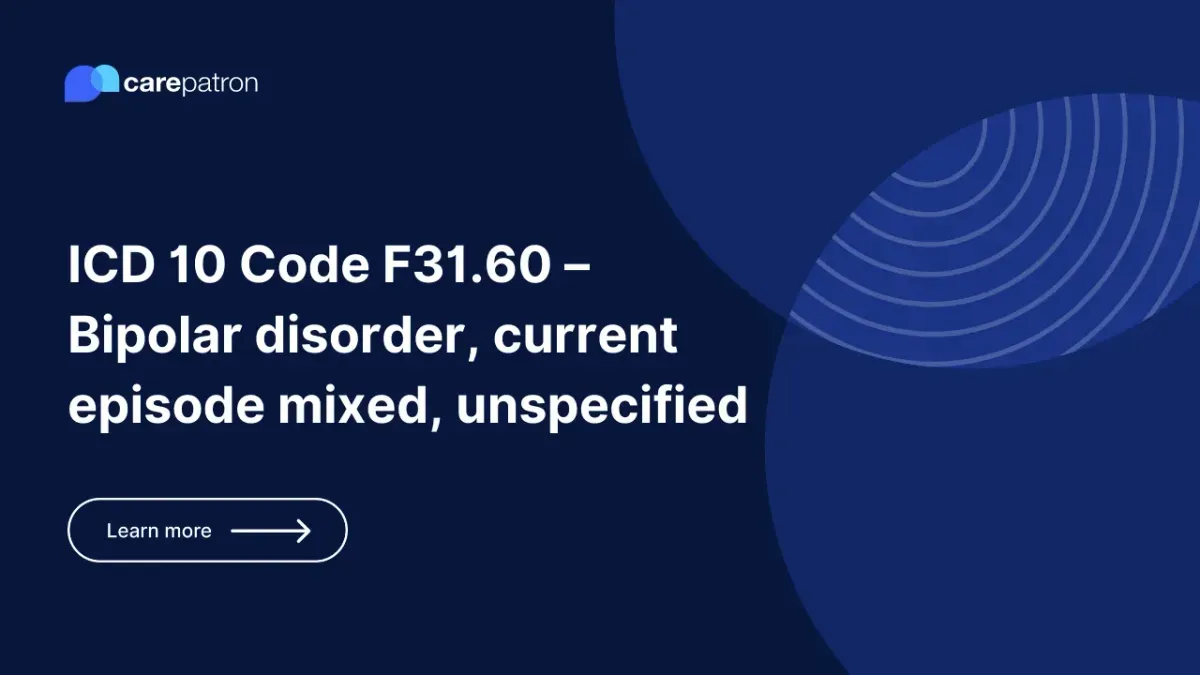
F31.60 – Bipolar disorder, current episode mixed, unspecified
Learn about ICD-10-CM code F31.60 for bipolar disorder, current episode mixed, unspecified, including its meaning, clinical details, and related codes.
Use Code
Commonly asked questions
Yes, this ICD-10 code is billable.
You use it when your patient is confirmed to have bipolar disorder, they’re currently having a mixed episode (meaning they are both depressed and manic), and the severity of this episode is unspecified.
Treatment for this disorder will depend on the severity, but normally, treatment includes medication (mood stabilizers and antipsychotics) and psychotherapy. Severe cases may involve hospitalization. In the case of this ICD-10 code, the severity is currently unspecified, so the healthcare provider must determine the severity before deciding what to add to a treatment plan.
EHR and practice management software
Get started for free
*No credit card required
Free
$0/usd
Unlimited clients
Telehealth
1GB of storage
Client portal text
Automated billing and online payments
